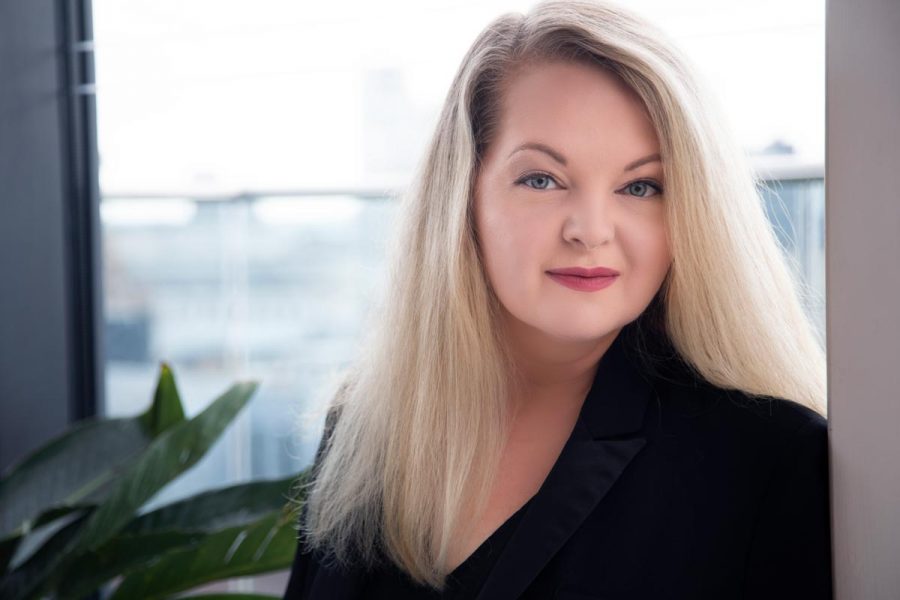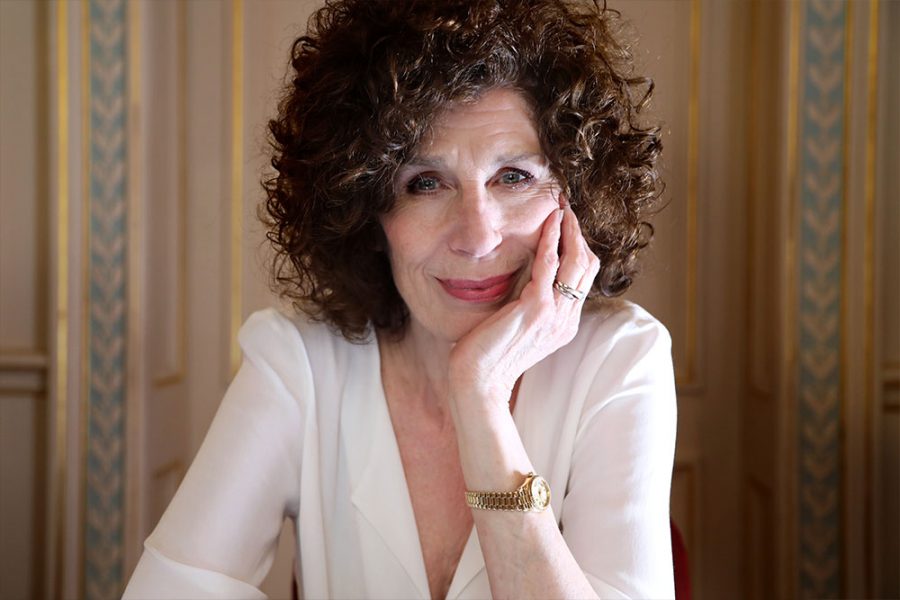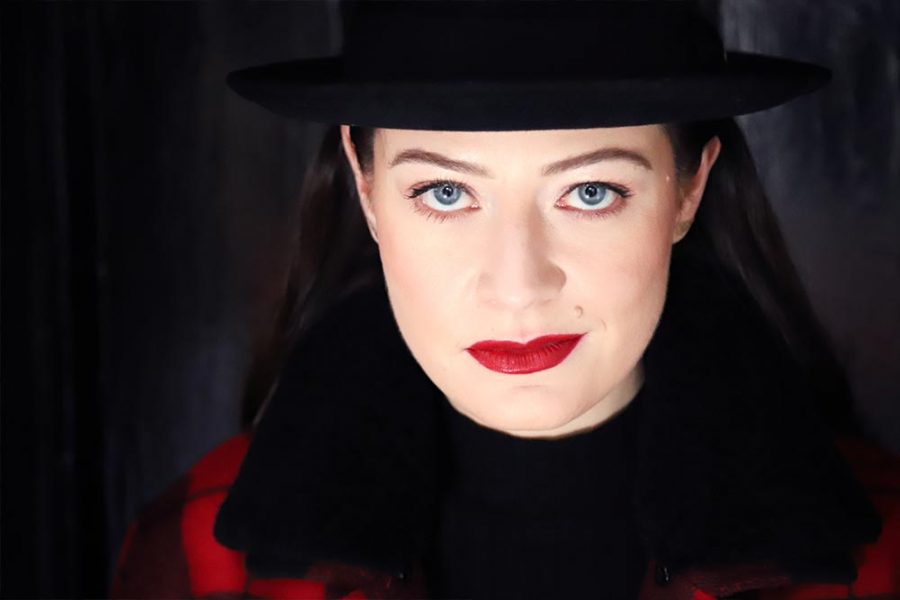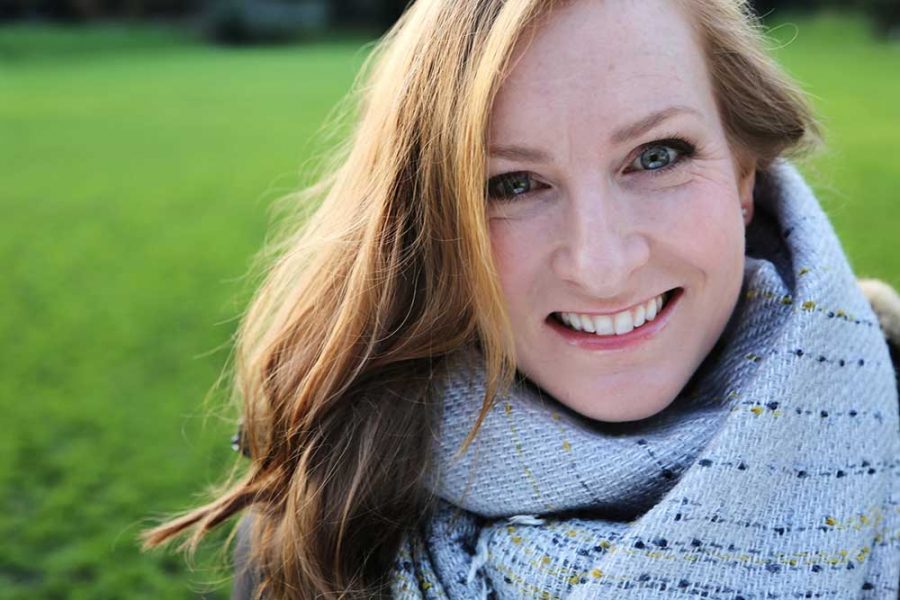Sarah Connolly’s World of Opera

December 2015
Words by
Emer Nestor
Photos by
Frances Marshall
Sarah Connolly CBE is one of Britain’s leading mezzo-sopranos. She has thrilled audiences the world over in a diverse cornucopia of roles with prestigious opera companies such as the English National Opera, Royal Opera House Covent Garden, the Metropolitan Opera, New York City Opera, La Scala, Opéra National de Paris, Bavarian State Opera, Welsh National Opera, Scottish Opera, Opera North, Glyndebourne Festival Opera and Festival d’Aix-en-Provence, to name but a few.
An established Wagnerian mezzo, Connolly’s command of the Baroque and Classical repertoire has garnered critical acclaim, as has her contribution to the fields of Art Song and New Music. A Fellow of the Royal College of Music, and former member of the BBC Singers, Connolly has been nominated for a Laurence Olivier Award, a TMA Award and two Grammy Awards. She has won numerous accolades for her captivating instrument, including an Edison, Gramophone and South Bank Awards. Connolly was appointed Commander of the Order of the British Empire (CBE) in the 2010 New Year Honours.
Connolly invites Final Note into her world of opera to chat about wigs, conductors, motherhood, the practicalities of life on the road, and the importance of stage experience.
As a child I always enjoyed singing alto and puzzling out the harmony...the more complex the better!"

What was your impression of opera as a child?
Up to about 11 years of age I was put off by the wobbly vibrato and I never liked loud music, which was unfortunate because my father used to play a lot of Verdi, Britten and Strauss opera!
Did your time as a boarder in Queen Margaret’s School in York nurture your musical instincts?
There was one teacher, Mr Gerrard, who recognised my potential. He was the school organist, choir and singing teacher. He terrified every pupil except me, probably due to my musical ability and the fact that I really enjoyed learning all that he had to offer. In my general musicianship lessons, he encouraged me to study the piano introductions of English Song repertoire and to understand their construction. Then he’d ask me to make up my own intros to the same song. He was a fascinating and complex man.
As a student of the Royal College of Music, how did you find the transition from pianist to mezzo-soprano?
I always knew that my days as a pianist were numbered. Because of that, I worked really hard for my excellent teacher, Patricia Carroll, during my 4 undergraduate years. At the start of my second year I had a revelation that I was to become a singer. I have never been more certain of any feeling.
When did you find your ‘mezzo’ voice?
As a child I always enjoyed singing alto and puzzling out the harmony…the more complex the better! I joined the local church choir purely to get my part-song fix.
How important is stage experience when auditioning for operatic roles?
When I was auditioning, I had minimal stage experience, which seemed to pose a problem for the operatic panel. Having come from a professional choir, the BBC Singers, and as a regular soloist with Philippe Herreweghe, I was considered an outsider by the majority of auditioning panels. I wasn’t very confident singing to them. With the benefit of hindsight, I’d say that imagination, a comprehensive musical education and concert experience are far more valuable at this stage than a cv of bit-parts here and there. Some good stage experience acquired at music college or small opera companies is of course very valuable. Both would be ideal!
At what point in your trajectory did you realize that you had ‘made it’?
To be honest, probably after the Last Night of the Proms in 2009. My agent’s phone rang more frequently after that!
Do you have a particular process when preparing for a concert?
I’m not superstitious but on the day of a performance I do have performance anxiety, or heightened awareness. I try not to get into any silly arguments with anyone, like a ticket instructor, or a bank manager on the day, as my adrenaline is pumping! It won’t end well for me. I drink a lot of water and choose carefully what to eat and when.

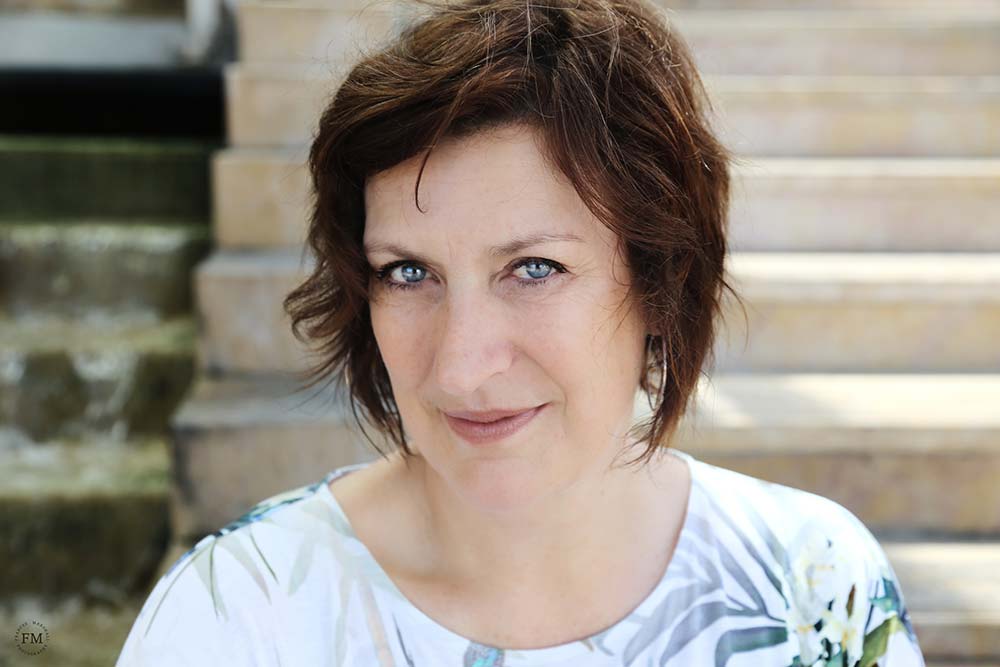


I love finding a character to play and the costume and make-up transformations are fascinating."

What do you enjoy most about the operatic experience?
I am a sociable creature, so meeting new people and seeing old friends is one of the better aspects. I love finding a character to play and the costume and make-up transformations are fascinating. It is only frustrating when I have a very different idea about the character to that of the designer. It’s only happened once or twice, but I feel a little lost…like I’ve had the rug pulled from under me. Speaking of rugs, aka wigs, I try to avoid them when playing men. I would rather cut my shortish hair than have fake hair.
I am deeply skeptical of all conductors unless I know them or know of their work. They are potentially all bad news until proven otherwise! Isn’t that terrible?! I cannot bear ‘dictators’. I am a collaborative musician and all decisions must be made collectively. One of my favourite conductors is Tony Pappano at the Royal Opera House. He leads confidently and successfully juggles the needs of the composers, players and singers with no obvious ego…or very little! Conductors all NEED egos!
You are highly respected as a Wagnerian mezzo and Classical and Baroque singer — how do you handle such a diverse repertoire?
Achieving a wide-ranging repertoire is something that I have worked hard at because I love that music so much and because of the guidance of conductors whose judgement I trust, such as Donald Runnicles, Vladimir Jurowski, Antonio Pappano and Mark Elder. I have drawn the line at certain heavier dramatic roles (Eboli and Kundry) because I know my voice won’t like the heft needed in the upper register. I have found it possible to switch styles from say, Handel and Wagner within a short space of time because I understand and respect the technical and stylistic demands of each style. It’s not easy though!
Did motherhood change your attitude towards your profession?
Not at all, but it meant that the work that takes me away from my daughter has to be worth it. I suffer terribly from guilt and fantasise about crises at home as an absent mother. In the past, I’ve had little choice and had to go away, just to pay the mortgage.
A hard-working dress wardrobe is necessary for life on the concert stage — where do you source your gowns and how important is fashion within the life of the classical singer?
I try to match the outfit to the identity and character of the music. That is very important to me. I source my clothes from many places depending upon what I want. Amanda Wakeley has served me well. I must have about 15 gowns of hers. Vivienne Westwood is great for modern, fun and not too serious concerts. Joseph does great DJ suits, and Phase 8 and Linea have some glamorous, stretch non-crease dresses for stuffing into suitcases on tour.
What are the top 5 ‘must-haves’ for your suitcase when on tour?
Apart from not forgetting my musical scores, dress and shoes:
1. Gelo Revoice (from Germany) mouth hydration tablets for long sits on stage before the first vocal entry.
2. Non-Sulphide hair shampoo and hair putty.
3. A good book.
4. My make-up bag, consisting mostly of Chanel and Mac products.
5. Medical bag containing minor ailment remedies.
How do you unwind after the adrenaline of being onstage has passed?
With either a cold beer or a glass of red wine, depending on my mood/health.
Your rising star reached meteoric success during the early years of the twenty-first century — have you since found a balance between work and having fun?
That work and having fun also includes my responsibility as a mother. Being an itinerant singer makes that difficult to juggle. I have always limited my operatic diary to one foreign opera job a year, frequently turning down major offers (much to my agent’s horror).
As a celebrated voice within the world of opera and oratorio, are there any significant moments from your career that stand out?
- Receiving my CBE from the Queen at Windsor Castle.
- The last Night of the Proms 2009.
- Successfully raising funds for the new Ivor Gurney window in Gloucester Cathedral (my idea to get one made in his honour and it is beautiful!).
- My first CD, Heroes and Heroines (2004) — paid for from my mother’s legacy — and also Dido & Aeneas CD for which I raised the funds and selected the cast.
- Speaking at the House of Commons recently in a bid to raise awareness of the Arts, especially in secondary education, to our current government.
What’s next on the horizon for you?
Next year is a super busy year of opera and concerts. I am breaking my rule of only one opera a year abroad…I don’t intend to do that again any time soon. It includes Ariodante in Amsterdam, the opening concert of the 2016/17 season at Wigmore Hall, Tristan und Isolde (Brangane) in Baden Baden with Sir Simon Rattle, my Bayreuth debut in Der Ring (Fricka), and Mahler 3 with Sir Bernard Haitinck and Riccardo Chailly.

All images displayed in this article are subject to copyright.
Share this article


